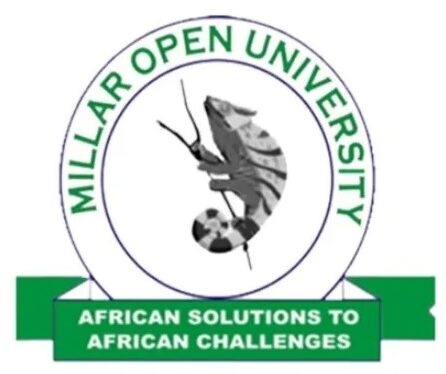Co-creating value, scaling impact.
Partners

Millar Institute for Transdisciplinary and Development Studies (MITDS)
From Bolgatanga to Amsterdam: A Ghana–Netherlands collaboration advancing Afrocentric scholarship grounded in community, rigor, and real-world impact.
Broos Institute is proud to partner with the Millar Institute for Transdisciplinary and Development Studies (MITDS) to deliver research-rich, Afrocentric education. Together, we connect European learners with Ghana-based expertise, field engagement, and faculty collaboration – enabling students to engage with scholarship that is inherently African in perspective yet globally relevant.
Why MITDS
MITDS has been delivering research-based higher education in Ghana for 10+ years, earning a reputation for rigorous and practice-oriented scholarship.
MITDS integrates the social sciences, humanities, and applied research, ensuring that theory is always tested against real-world challenges.
MITDS prioritizes African epistemologies, endogenous development, and community-based approaches, making it a leading voice in Afrocentric scholarship.
From mature students to working professionals, MITDS offers flexible study modes, including distance and blended learning, to reach diverse learners.
“Finding African Solutions to African Challenges.”
— MITDS
What This Partnership Enables
MITDS faculty contribute to Broos Institute courses and seminars.
Co-supervision and cooperative projects exploring African thought, development, and diaspora studies.
Practice-oriented modules designed for working professionals.
Structured pathways for site visits, academic exchanges, and research placements.
Joint Programs & Opportunities
Study at Broos Institute. Learn with MITDS.
Master’s / MPhil in African Culture and Development (Part-Time, 2 Years) – Delivered in English, with joint teaching, research links, and guest lectures from MITDS.

Faculty & Supervision
MITDS scholars collaborate as guest lecturers, external readers, and research partners. Broos Institute aligns supervision areas with partner expertise to ensure methodological rigor and ethical, community-grounded practice.
Academic Quality & Governance
Partnership activities are coordinated through formal agreements that set academic standards, supervision protocols, data ethics, and learner support expectations. Program-level details are published on each course or degree page.
“We believe in development from within; within the worldview, belief system, and culture of a people. Everything starts with the indigenous knowledge of the people, and we guard against dominance from an externally controlled agenda. Our university has developed to add topics such as transdisciplinarity and transcendence, experiential learning, and decolonization of knowledge systems to the educational system.”
